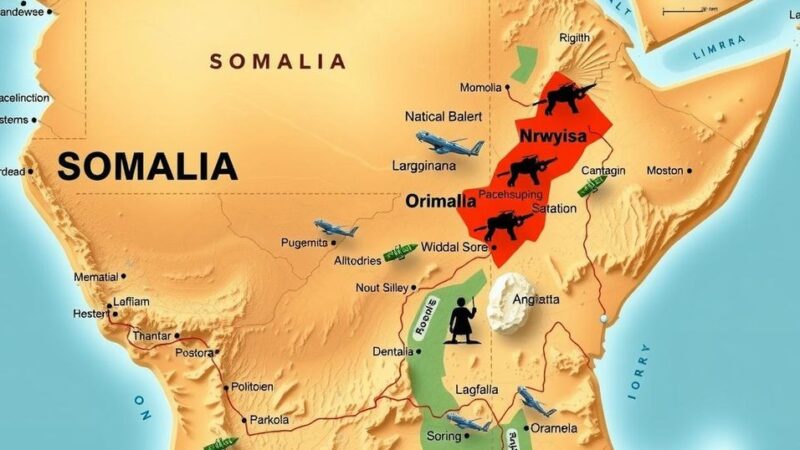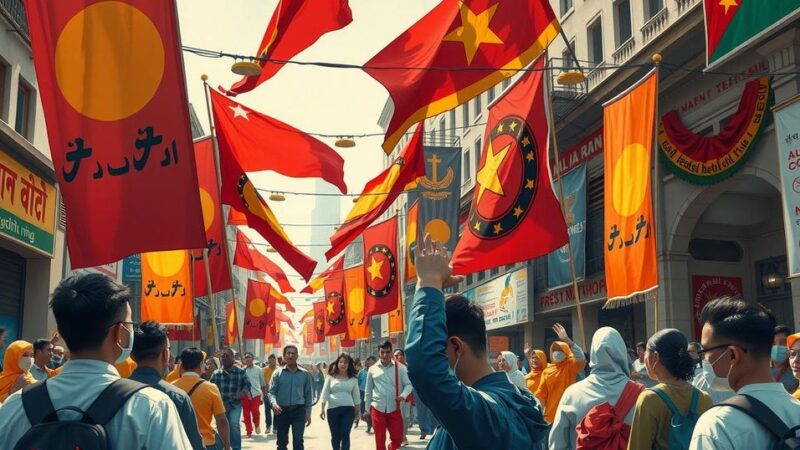Women leaders from Venezuela and Nicaragua discussed U.S. imperialism’s impact on their countries during a gathering in New York City. Key issues included illegal deportations of Venezuelan migrants and notable gains in gender equality in Nicaragua. The meeting emphasized the historical context of U.S. intervention and the critical role of women’s organizations in resisting oppression.
On March 20, women leaders from Venezuela and Nicaragua convened at the Workers World Party office in New York City to engage in an open discussion with U.S. anti-imperialist activists. The meeting coincided with their participation in women’s organizations at the United Nations, focusing on the resistance of both nations to U.S. imperialism and the progress made in women’s rights within Latin America.
The meeting addressed Venezuela’s plight under the Trump administration’s policies, especially regarding the ongoing illegal deportations of Venezuelan migrants. Deputy to the Venezuelan National Assembly, Asia Villegas, emphasized the detrimental impact of U.S. sanctions that have cost Venezuela $650 billion and disproportionately affected women, the primary caretakers within families. The session was prompted by recent U.S. actions that targeted migrants unjustly.
Villegas criticized the Trump administration’s seizure of migrants, claiming they were wrongly branded as gang members without due process, leading to unjust deportations. She articulated that economic pressures originally forced many Venezuelans to migrate, only to be misled by promises of protection in the U.S. that were later rescinded without warning, framing this as an imperialistic betrayal.
Acknowledging Venezuela’s diverse ethnic composition, Villegas stated, “We are not criminals, and we are not enemies of the people of the United States,” crediting local organizations for their resilience against U.S. imperialist aggression. She concluded with a strong statement of solidarity for women in nations facing imperialist oppression, specifically mentioning Palestinians and Cubans.
Hazel Reyes represented Nicaragua, detailing the country’s success in gender equality as highlighted by the World Economic Forum’s 2024 report, which ranked Nicaragua first in Latin America and sixth globally in this regard. She pointed out that awareness of these achievements is limited due to years of U.S. anti-Sandinista propaganda following the 1979 Sandinista Revolution.
Reyes emphasized the advancements in women’s education under the Sandinista government, noting that women comprise 52% of higher education enrollment and promoting policies to ensure equal representation across governance levels. During the Q&A segment, she highlighted developmental progress for Indigenous communities and those on the Atlantic Coast, thanks to improved infrastructure and access to essential services.
The meeting was co-chaired by Saher Al-Khabash and Mairead Skehan Gillis, who also translated for the speakers. Prior to the main discussion, representatives from the Bronx Anti-War Coalition and Brooklyn’s Mutual Aid and Scientific Socialism shared insights into their organizations’ efforts.
The meeting showcased the profound impact of U.S. policies on the peoples of Venezuela and Nicaragua, highlighting the resilience of women in both nations. Key discussions revolved around the adverse effects of economic sanctions, migrant deportations, and the strides towards gender equality. The participants exemplified how grassroots movements can confront imperialism while drawing attention to the humanitarian challenges faced by marginalized groups globally.
Original Source: www.workers.org






